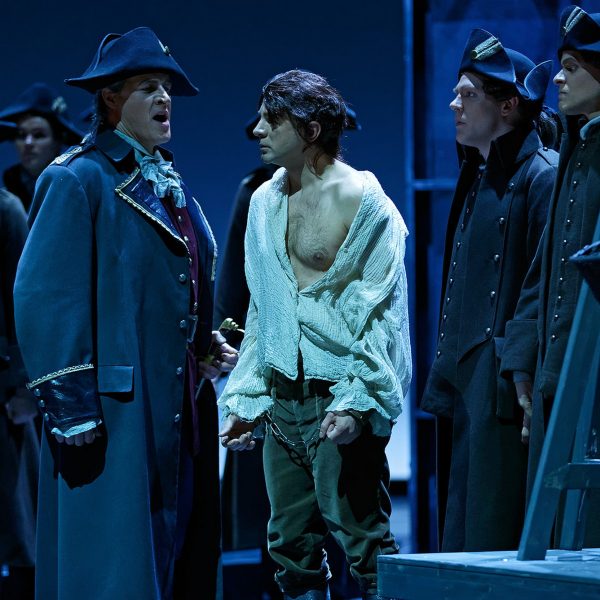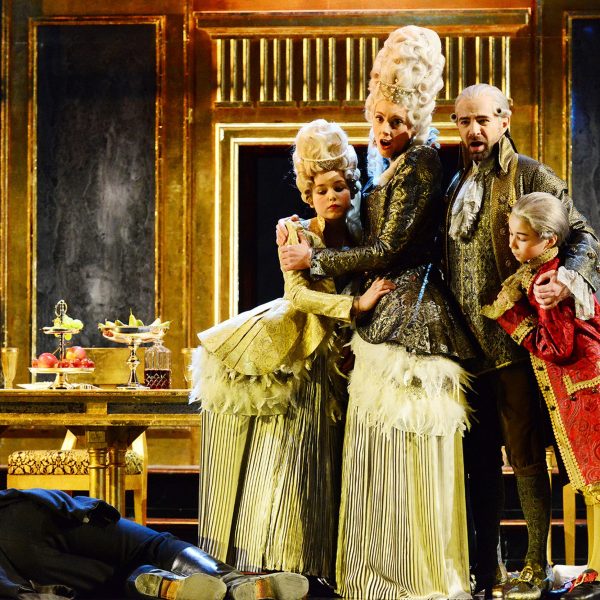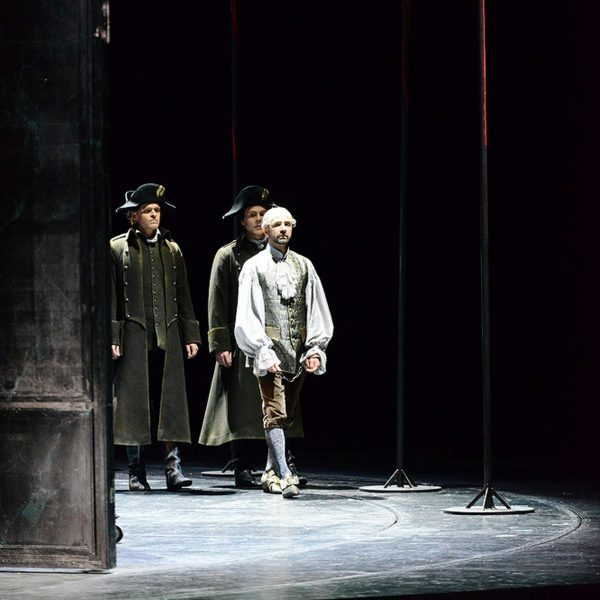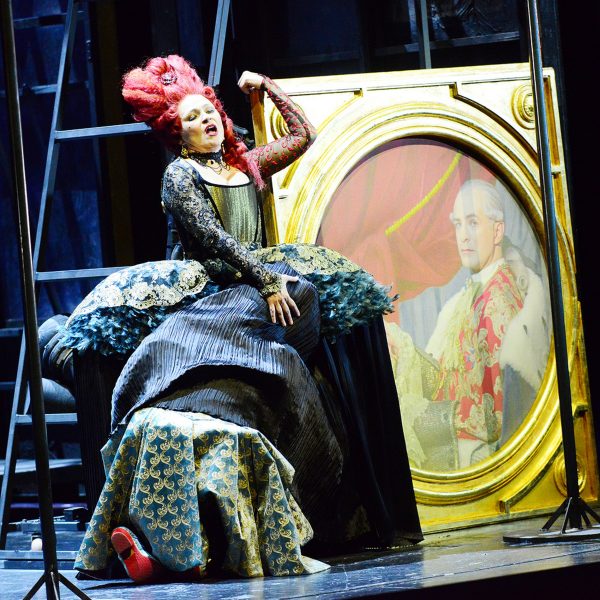Arminio
G. F. Händel
Described by one contemporary commentator as “a miracle”, and another as “in every respect excellent & vastly pleasing”, Arminio strangely received only six performances between 12 January and 12 February 1737 at London’s Covent Garden, and was never staged again for almost two hundred years. Also unfairly neglected in more recent times, it is ripe for reappraisal and a new representation for today’s audiences. A heroic story, based on historical events occurring on the Germanic fringes of the Roman Empire, it is now being revived in a new and ravishing production by Parnassus Arts under their artistic director Max Emanuel Cencic: a combination with an unequalled track record in Handelian opera seria, as witnessed by their multiply-award-winning staging and recording of Alessandro (from 2012 to date).
The story of Arminio is based on the infamous defeat at the Battle of Teutoburg Forest (AD9), of three Roman legions under their General Publius Quintilius Varus at the hands of the barbarian prince Hermann/Arminius, commanding an alliance of seven Germanic tribes. Called the “Clades Variana” (the Varian disaster) in Roman sources, this catastrophe ended forever the Empire’s dream of dominating any large territory beyond the River Rhine. It is typical of the attitudes of opera seria librettists to history that these events, and Varus’ subsequent death, are only referred to in a few lines of recitative at the opera’s dénouement. Instead, the author of the libretto, Antonio Salvi, takes the main characters’ names and weaves around them a powerfully-conflicted plot of love and jealousy, duty, deception and attempted suicide, in which Arminio is a long-suffering hero defeated and captured by the Romans, whose leader, Varo, lusts after his wife. The text that Handel set is much-revised, reducing especially Salvi’s recitative (over 1300 lines, cut to little more than 300: this may well have been done for the sake of Handel’s London audience, few of whom understood Italian). The original version was popular with other well-known composers, including Caldara and Galuppi, and was twice set by Handel’s great contemporary, Johann Adolf Hasse.
The greatest stars of Handel’s operas were castrati, such as the famous contralto Senesino, his lead singer for seventeen of his earlier stage works. In 1733 he finally deserted Handel for a rival company, and so the composer hired other singers as his primi uomini, none of whom stayed with him for more than a couple of seasons. Considering the notorious rivalries between singers, castrati especially, which were perhaps even more prevalent in the eighteenth century than they are today, Arminio is rather unusual, in that it could be said to have two parts for “first man”: the title role, written for the high alto Domenico Annibali, certainly has the larger amount to sing, but the first performer of the role of Sigismondo, the soprano castrato Domenico Conti, called Gizziello, was probably the more famous singer at the time, as well as being the only male soprano (rather than mezzo or contralto) for whom Handel wrote roles in London. Conti, however, was a famously modest person, which probably facilitated Handel’s solving of this problem of singer protocol. Annibali, for long in the service of the Electors of Hannover at Dresden (thus, amongst many other claims to fame, becoming the only castrato modelled in porcelain by the famous Meissen factory), was described by a friend of Handel as having “the best part of Senesino‘s voice and Caristini‘s, [another of Handel’s stars] with a prodigious fine taste and good action.” Conti was a more typically itinerant singer, achieving fame throughout Italy, in Vienna ,and Lisbon. Handel was said to consider him “a rising genius”, but he was self-effacing almost to a fault. Once he fainted on hearing the great Farinelli sing, saying that he could never himself perform thereafter. According to the music historian Charles Burney, after surviving the disastrous Lisbon earthquake of 1755, Conti “was impressed with such a religious turn by the tremendous calamity, that he retreated to a monastery, where he ended his days” (this may be more legendary than factual, but makes for a good story …). The lead soprano role of Tusnelda was taken by a woman of sterner stuff, the famous soprano Anna Maria Strada del Pò, who was a stalwart musical servant of Handel throughout the 1730s. She sang thirteen opera premieres for him, as well as eleven revivals. Though no beauty (her most common nickname was “the Pig”), she was a fine artist of considerable emotional and vocal range. Handel supposedly regarded her as “a singer formed by himself, and modelled on his own melodies. She came hither a coarse and aukward [sic] singer with improvable talents, and he at last polished her into reputation and favour “. The typically smaller role of the Roman commander Varo saw the third appearance in a Handel opera by the great English tenor John Beard, who didn’t wholly escape a critical mauling, being described by Lord Shaftesbury as “absolutely good for nothing.” Handel clearly disagreed: Beard went on to sing in another seven of his operas, and in almost every one of his English oratorios. He later, and with much scandal, married into the English aristocracy, and at length himself became proprietor of Covent Garden Theatre, the very place where Arminio, and so many of Handel’s operas, were first performed.
STAGE PERFORMANCES OF ARMINIO
directed by Max Emanuel Cencic:
February 13 – 23, 2016:
BADISCHES STAATSTHEATER
Karlsruhe (DE)
(6 performances)
February 24 – March 1, 2017:
BADISCHES STAATSTHEATER
Karlsruhe (DE)
(3 performances)




